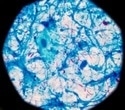Testing and treatment for tuberculosis must take place close to the site of infection. For use in its Actiphage® blood test for active TB, PBD Biotech has created a lyophilized PCR reaction bead. This makes ambient shipping possible without the need for a cold chain, which lowers shipping costs and increases the shelf life of test component parts. Enzyme-containing products must be transported in a cold chain because they are temperature-sensitive and need to maintain their functional integrity. A method of removing water called lyophilization can be used to increase shelf life.
In order to specifically detect DNA lysed from Mycobacterium tuberculosis (Mtb) isolated from a human whole blood sample, PBD has developed PCR primers and probes. The polymerase enzyme, an anti-contamination enzyme called UNG, dNTPs, oligonucleotide primers and probes, and PCR additives will all be present in the beads. Actiphage has the potential to break the cycle of infection by enabling early detection of TB disease progression, providing an exciting contribution to the WHO #EndTB initiative.
There are other areas where Actiphage can support the #EndTB campaign, according to Jane Theaker, CEO of PBD Biotech. Early testing and treatment of patients who have the infection and are likely to progress to active disease before they transmit their infection is an important pillar of the #EndTB campaign, she says.
Actiphage, she says.Antimicrobial resistance is a growing concern for the treatment of TB. Actiphage could be used to monitor the effectiveness of drug treatments, ensuring that, once the infection is cleared from the blood, the drug treatment can be stopped. In this way the potential for antimicrobial resistance can be minimised. This safeguards drug treatments for future use in TB patients.”





